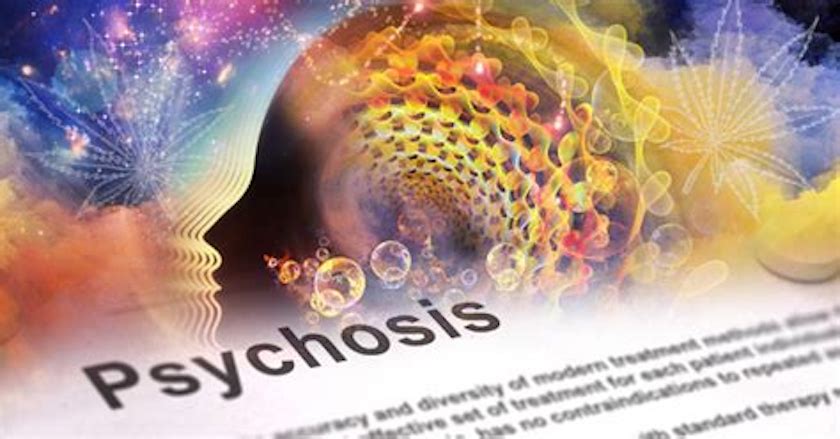Psychosis is defined as a severe mental disorder in which thought and emotions are so impaired that contact is lost with external reality. But what causes it?
Ask most people and one of the first answers they’d think of would probably be cannabis – an example of the population being miseducated en masse by pseudo-science and media scaremongering.
Many people may even think that the very act of ‘getting high’ equates to an episode of psychosis. But getting high is simply euphoria or bliss experienced from increased levels of dopamine from delta-9-tetrahydrocannabinol (THC), the psychoactive compound in cannabis.
There is some evidence that very high doses of THC can be harmful particularly for young people whose brains have not yet fully developed. But often when psychosis is linked to cannabis, it is the case that cannabis use has coincided with or perhaps exacerbated an existing episode of psychosis – something that is usually overlooked. It is easier to blame the cannabis than look for the real root causes, which might be societal…
There is no proven causal link with cannabis, only an associated one. In fact research has shown that “cannabis does not in itself cause a psychosis disorder” and that actually “early use and heavy use of cannabis are more likely in individuals with a vulnerability to psychosis”.
What’s more, many hospital admissions that are catagorised as being linked to cannabis are actually due to synthetic cannabis, but the two get lumped together.
According to the NHS, there are three main areas to look at, the first being psychological causes. The following conditions have been known to trigger psychotic episodes in some people:
- schizophrenia – a mental health condition that causes hallucinations and delusions
- bipolar disorder – a person with bipolar disorder can have episodes of low mood (depression) and highs or elated mood (mania)
- severe stress or anxiety
- severe depression
- lack of sleep
The underlying psychological cause often influences the type of psychotic episode someone experiences. For example, a person with bipolar disorder is more likely to have grandiose delusions. Someone with depression or schizophrenia is more likely to develop persecutory delusions.
Traumatic events, like the death of a loved one, a sexual assault or brain injury, can also lead to psychosis in people who are vulnerable to it.
Then there are general medical conditions. The following have been known to trigger psychotic episodes in some people:
- HIV and AIDS
- malaria
- syphilis
- Alzheimer’s disease
- Parkinson’s disease
- hypoglycaemia (an abnormally low level of glucose in the blood)
- lupus
- multiple sclerosis
- brain tumour
The third area is substance misuse, including from drinking large amounts of alcohol, a drug that is of course legal. Drugs known to trigger psychotic episodes include:
- cocaine
- nicotine
- amphetamine (speed)
- methamphetamine (crystal meth)
- mephedrone (MCAT or miaow)
- MDMA (ecstasy)
- cannabis
- LSD (acid)
- psilocybins (magic mushrooms)
- ketamine
A person can also experience a psychotic episode if they suddenly stop drinking alcohol or taking drugs after using them for a long time, ie suffer withdrawal.
Again, high doses of THC can provoke anxiety and paranoia. Which is one of the reasons why UKCSC promotes a regulated cannabis market. But there are other variables. Smoking cannabis means it gets into the bloodstream very quickly, whereas the effects from edibles are felt more slowly. But experiences are also highly individual. What produces paranoia in one subject might be an OK blaze for another. Likewise, while science can explain certain feelings like muscle relaxation and hunger, the exact formula needed to replicate an identical reaction in everyone is very difficult to realise.
The point is that there is nothing about cannabis that uniquely links it to psychosis, and other causes are far more common. In any case, a regulated market could ensure that the doses of THC are kept to a safe level through consumer safety labelling and advice (like any other legal product) – so anyone who is truly concerned about its effects should get behind the legalisation movement.




